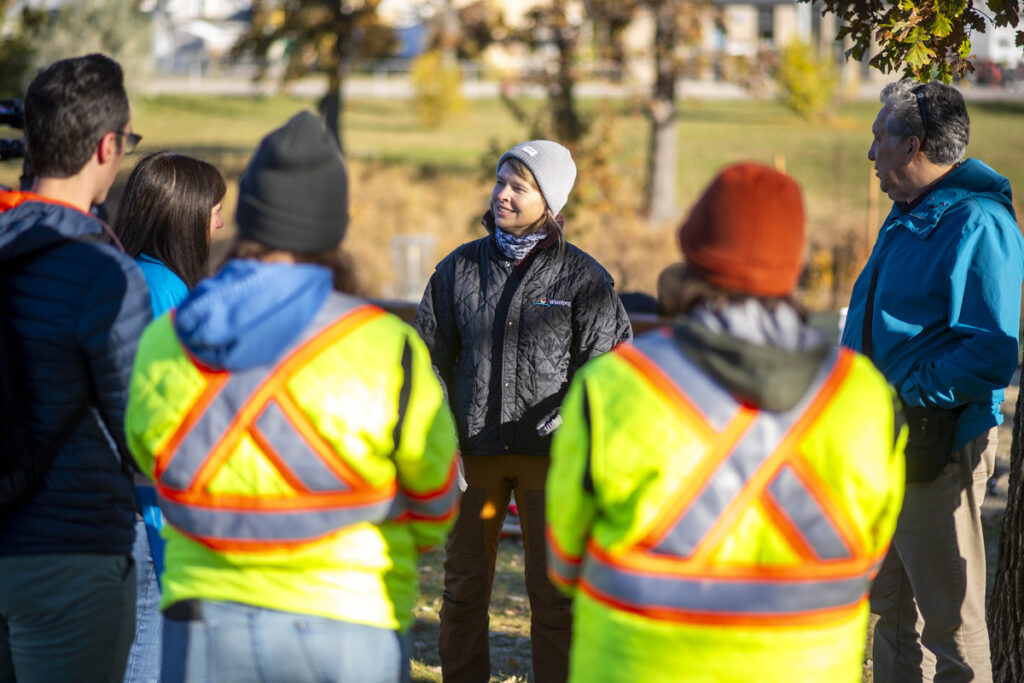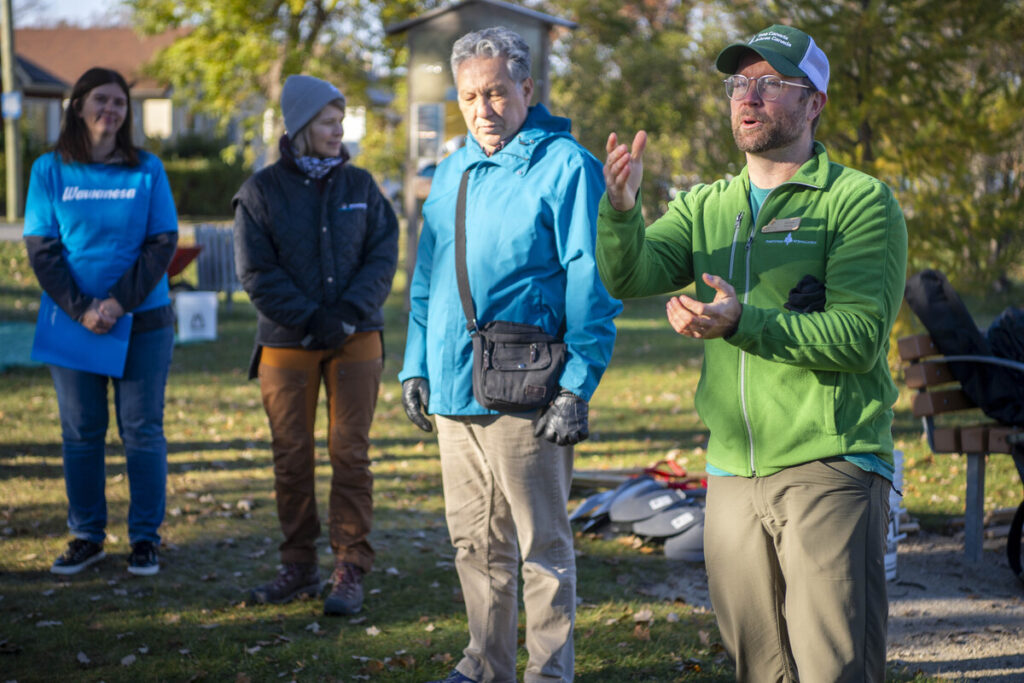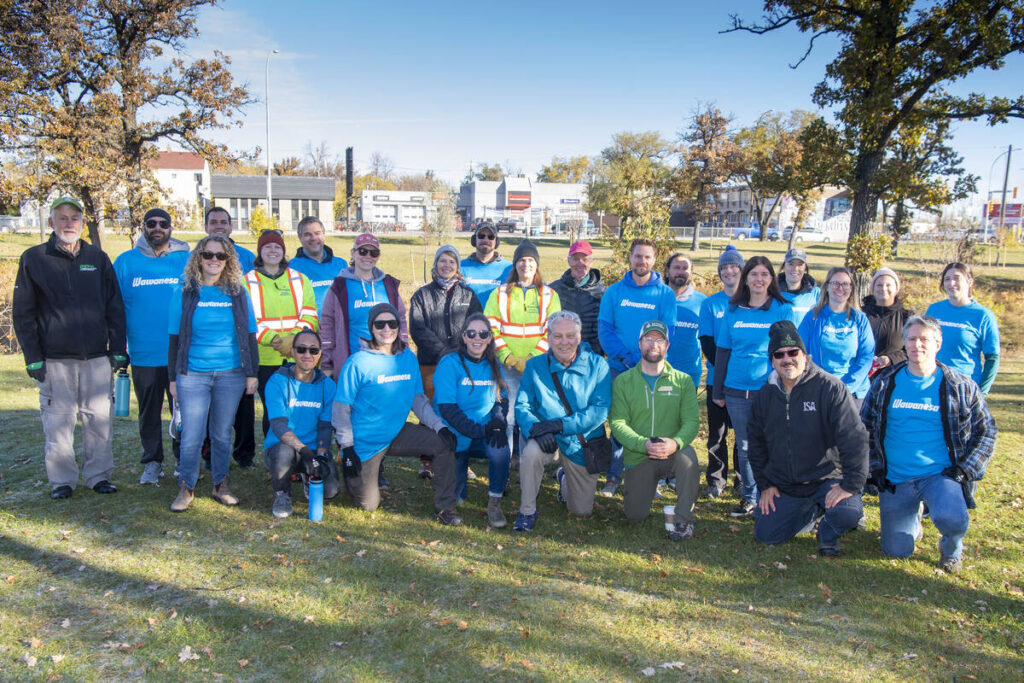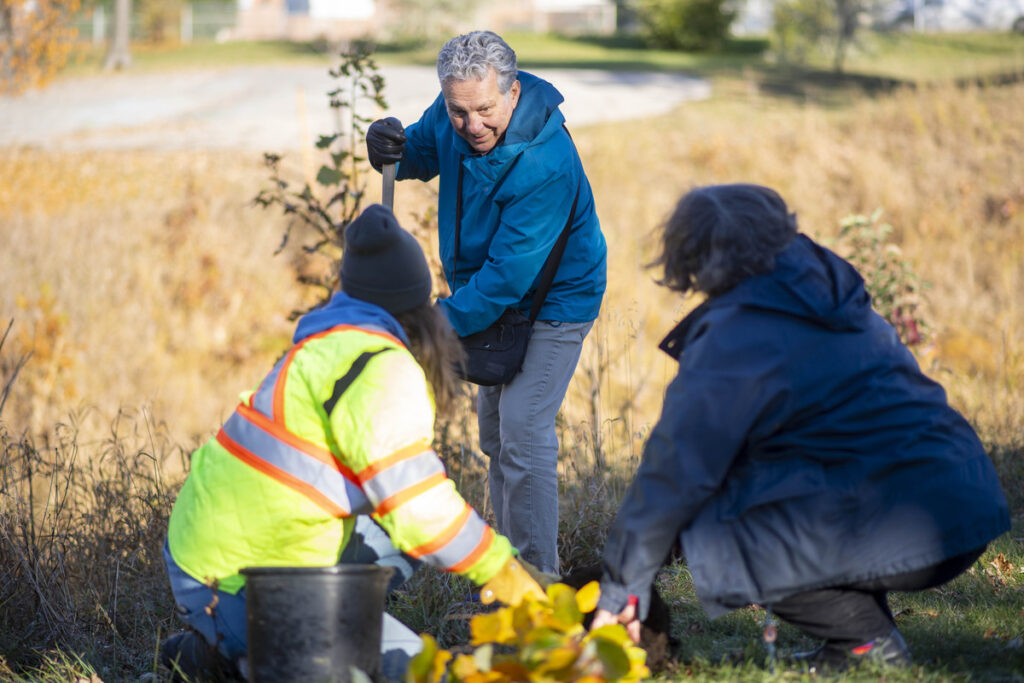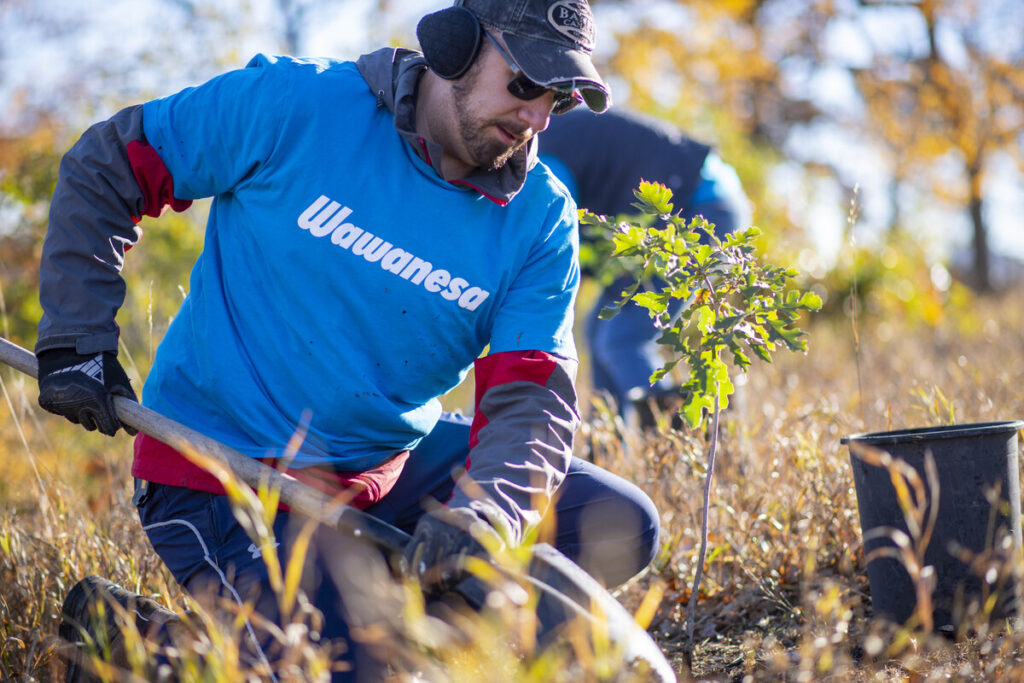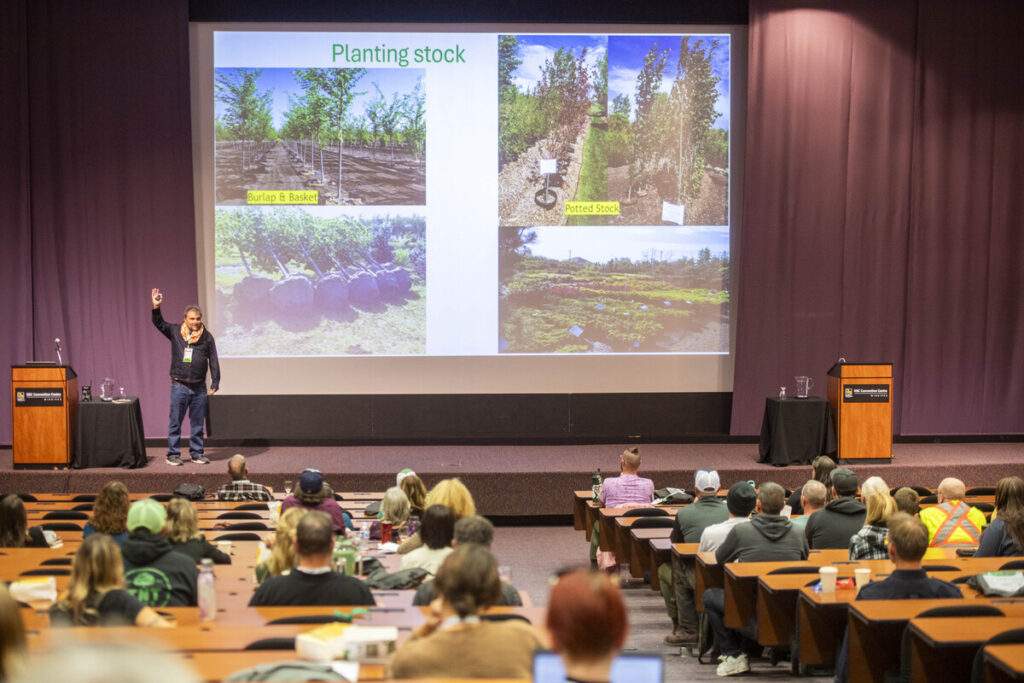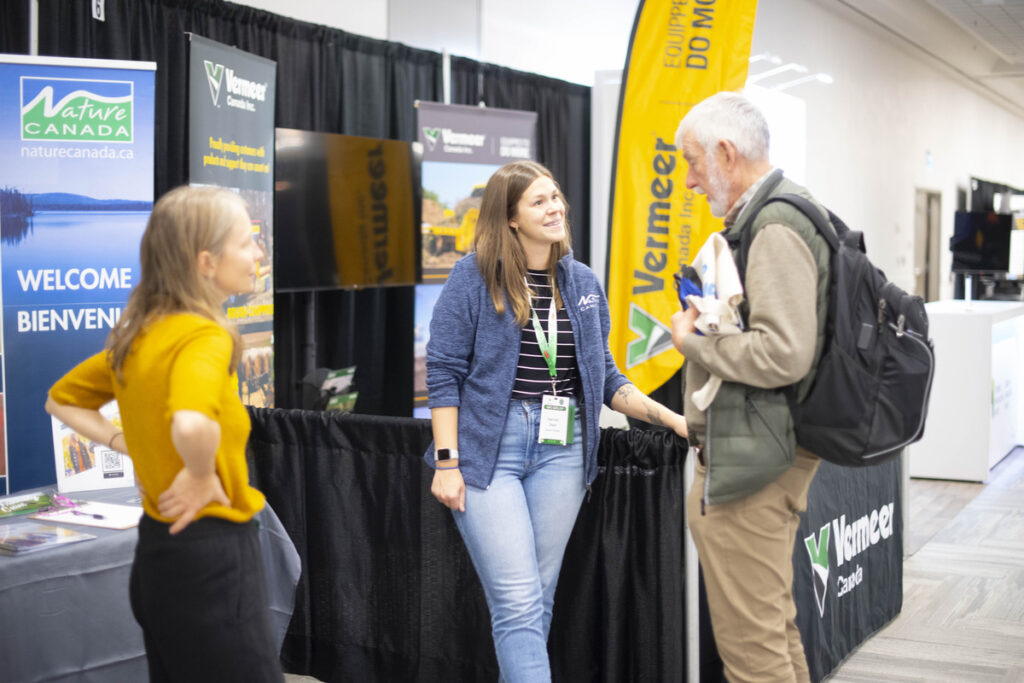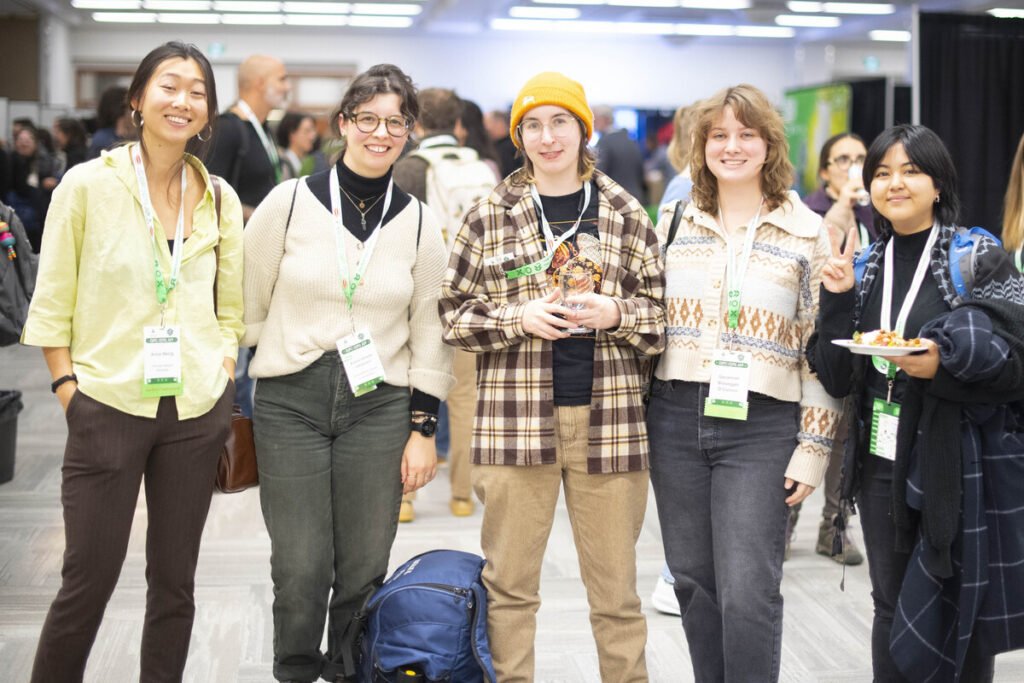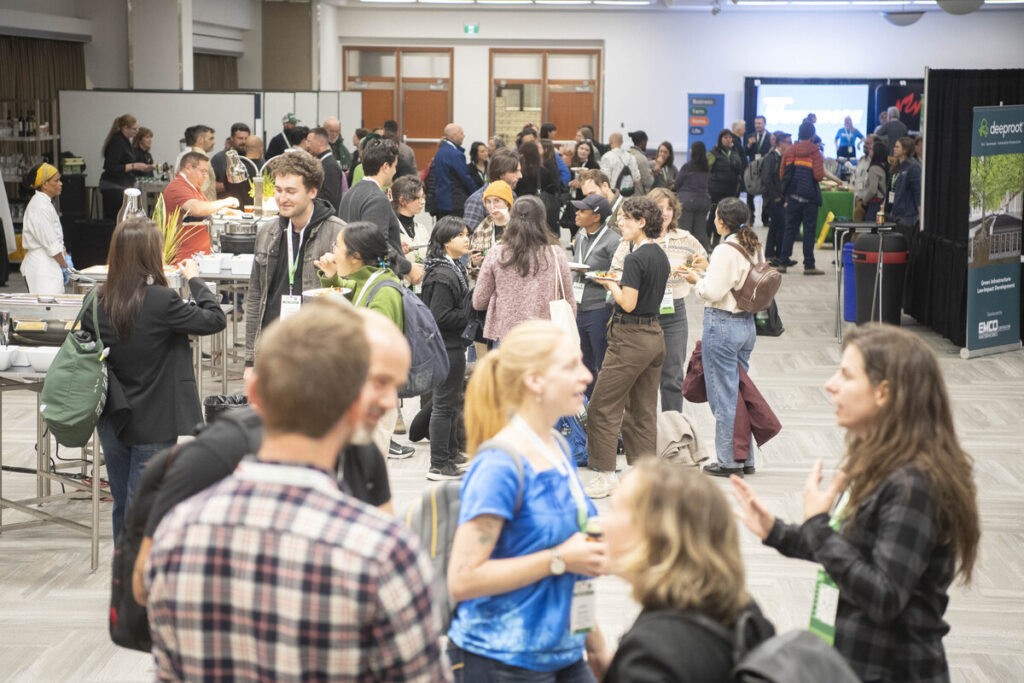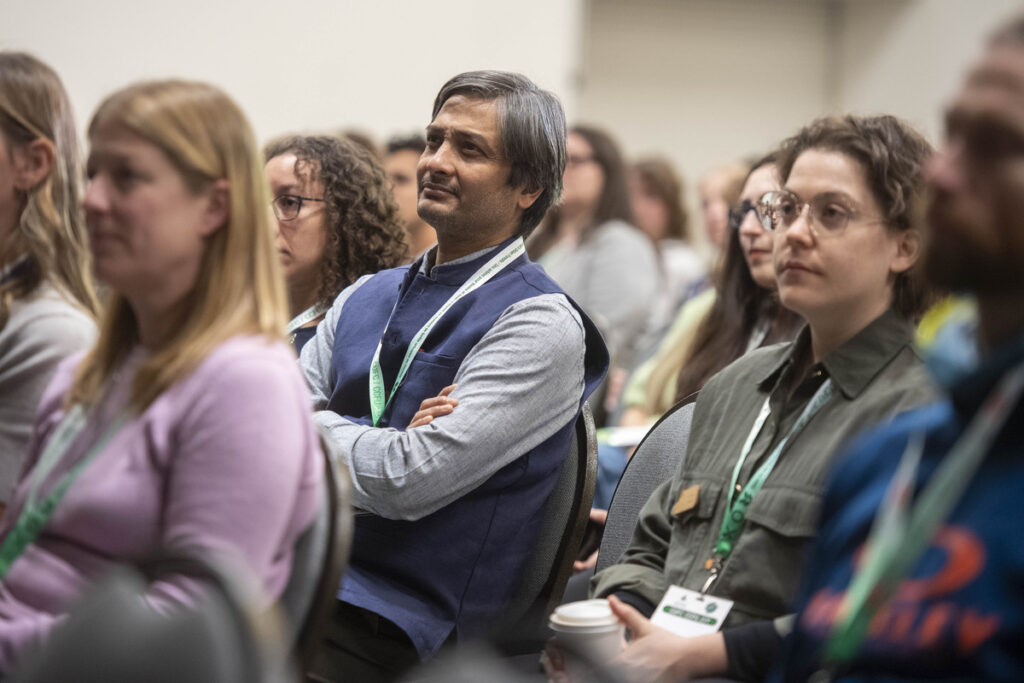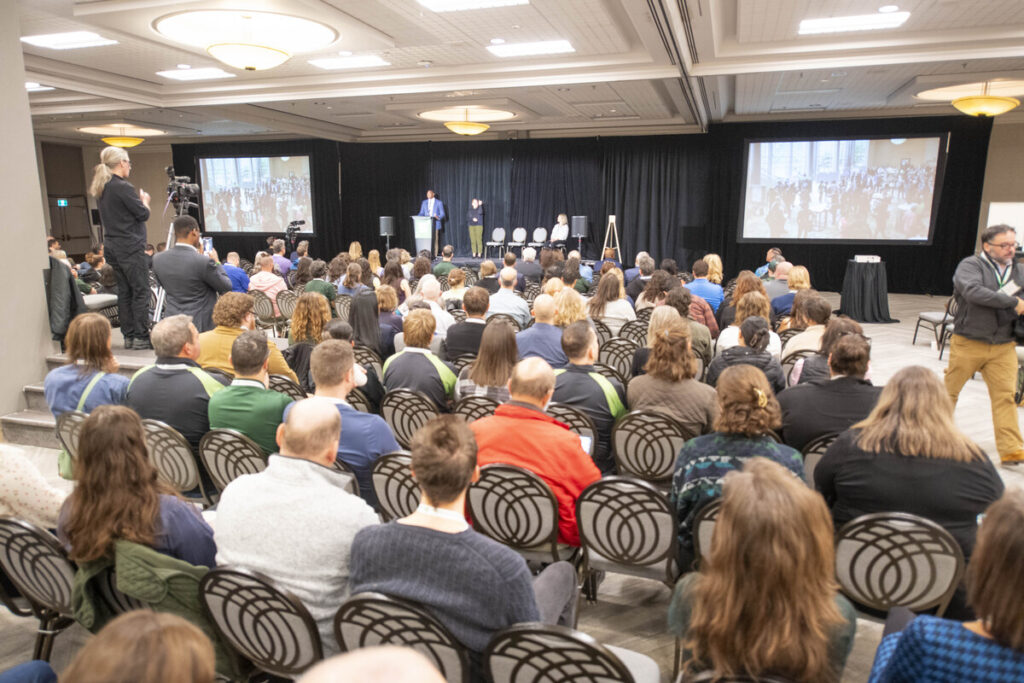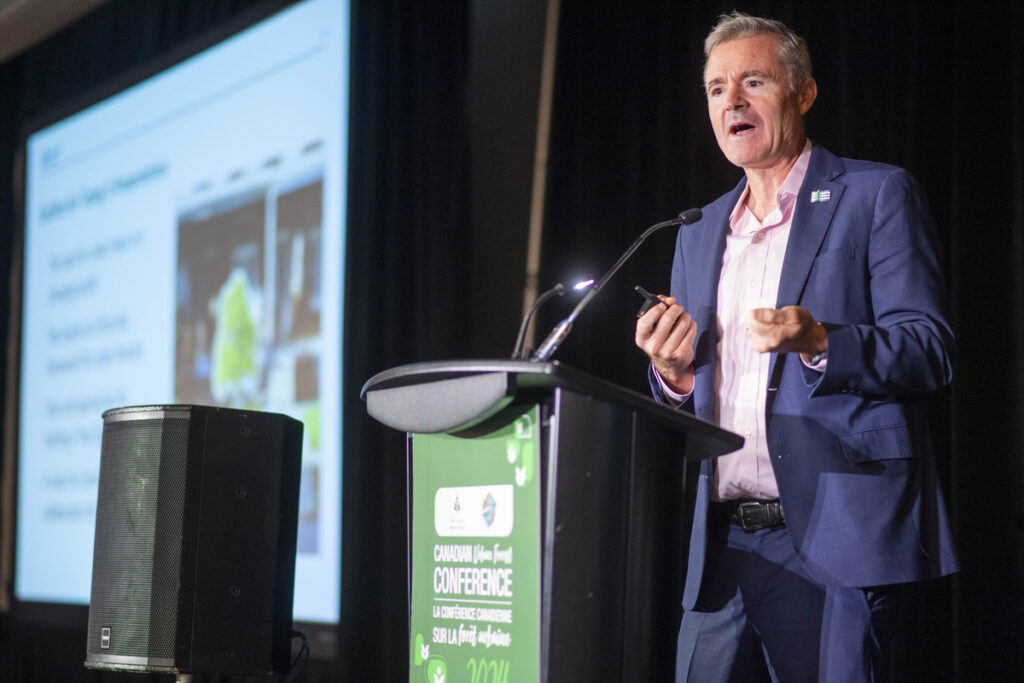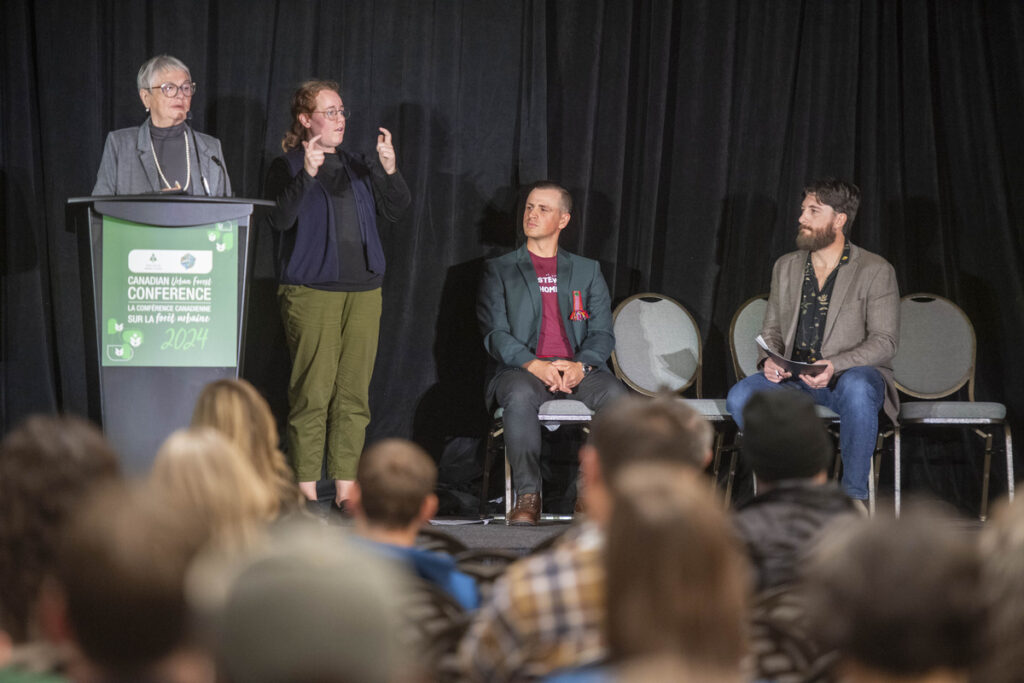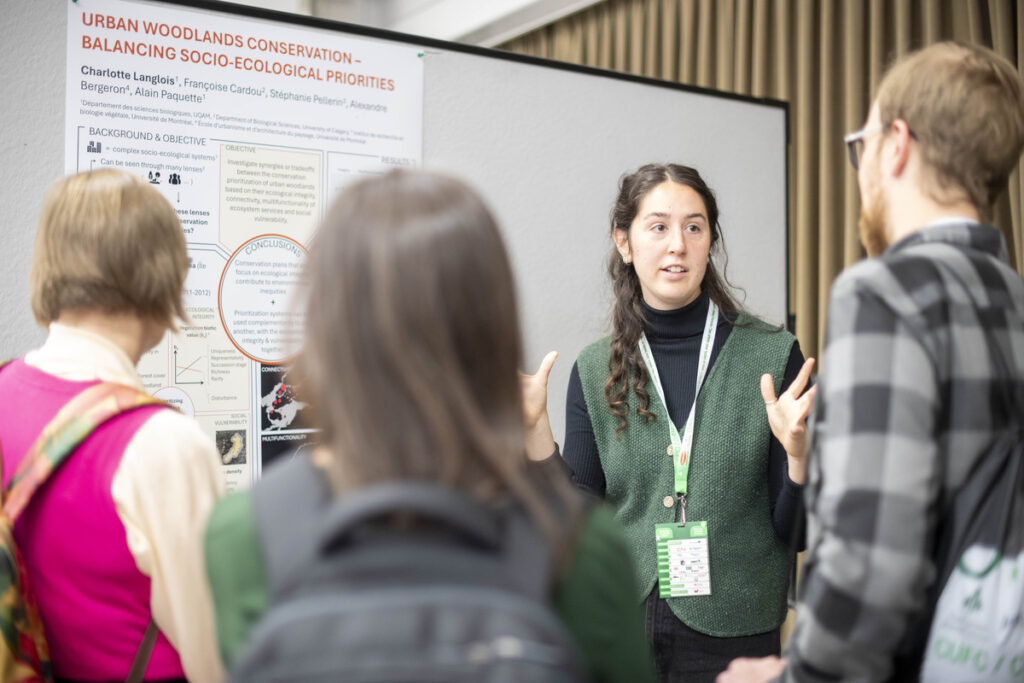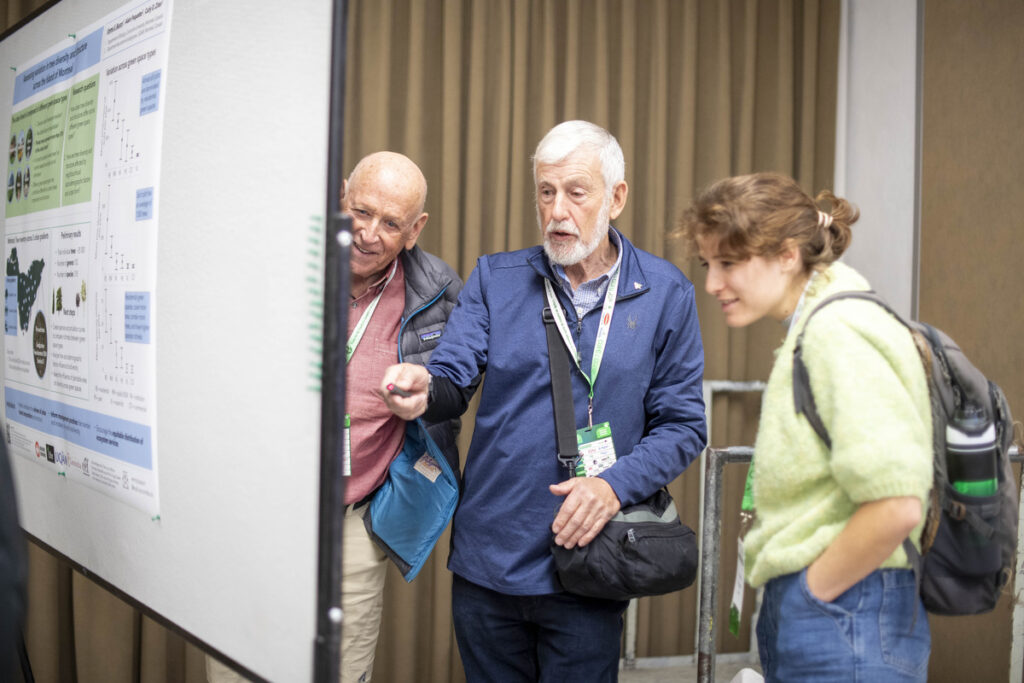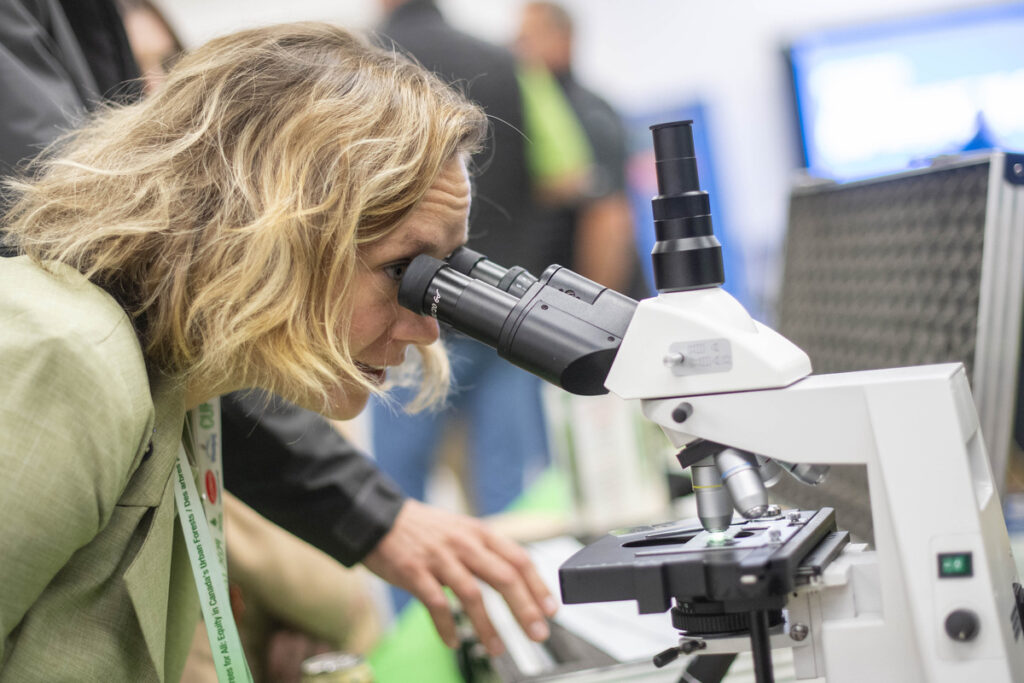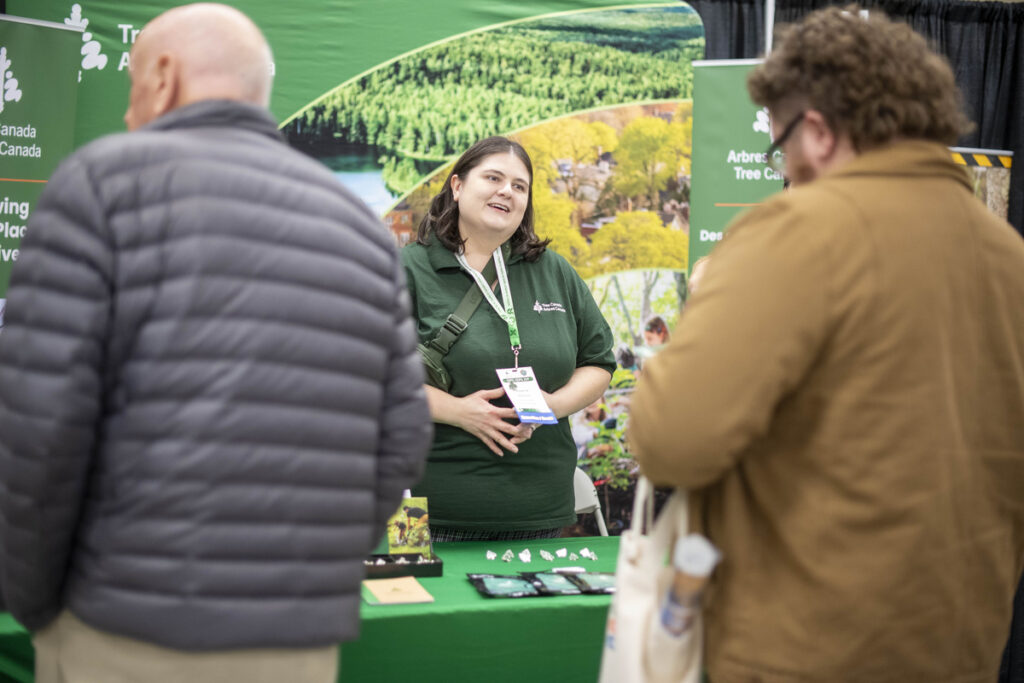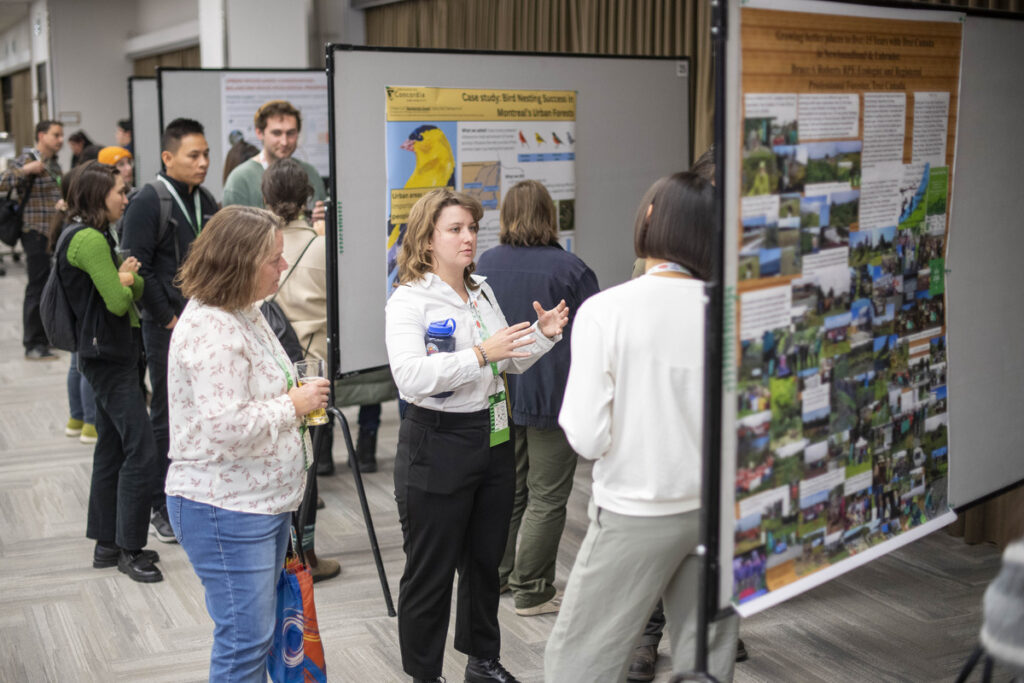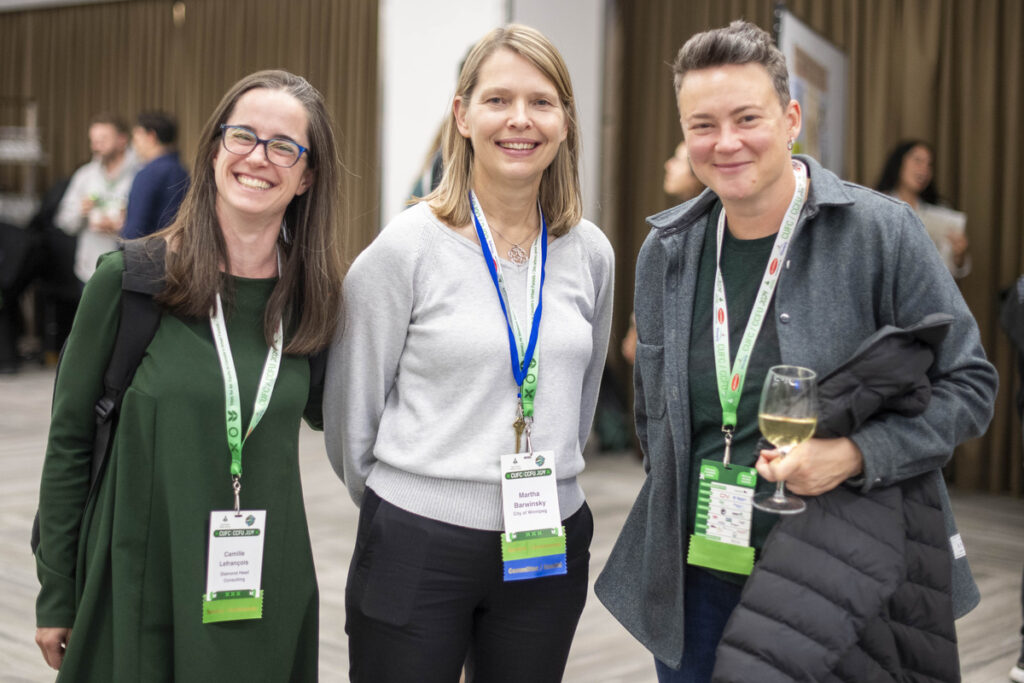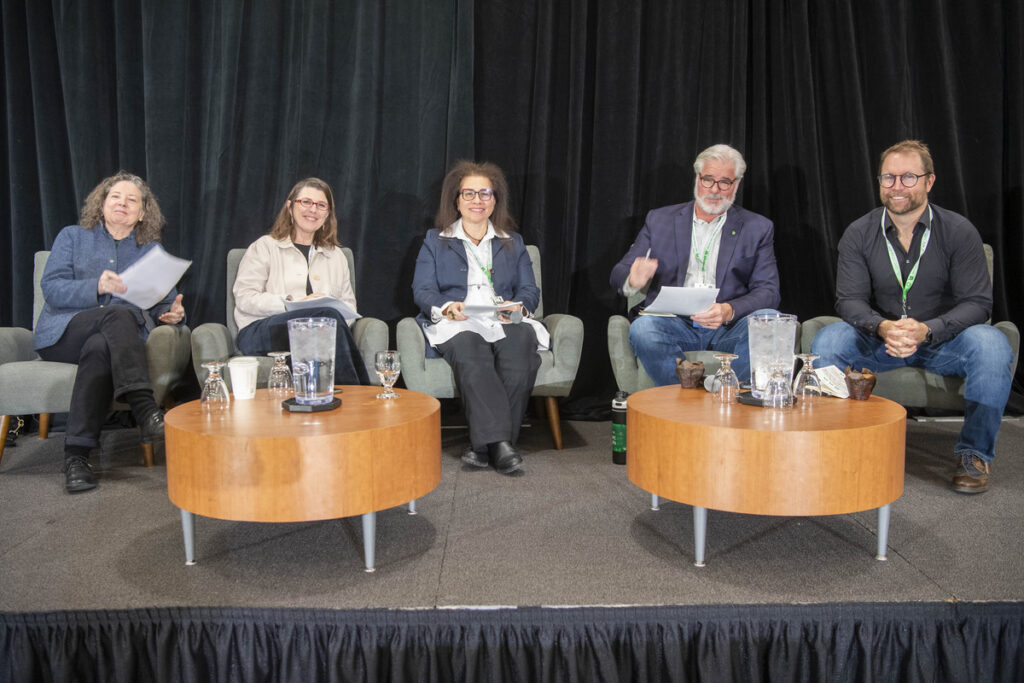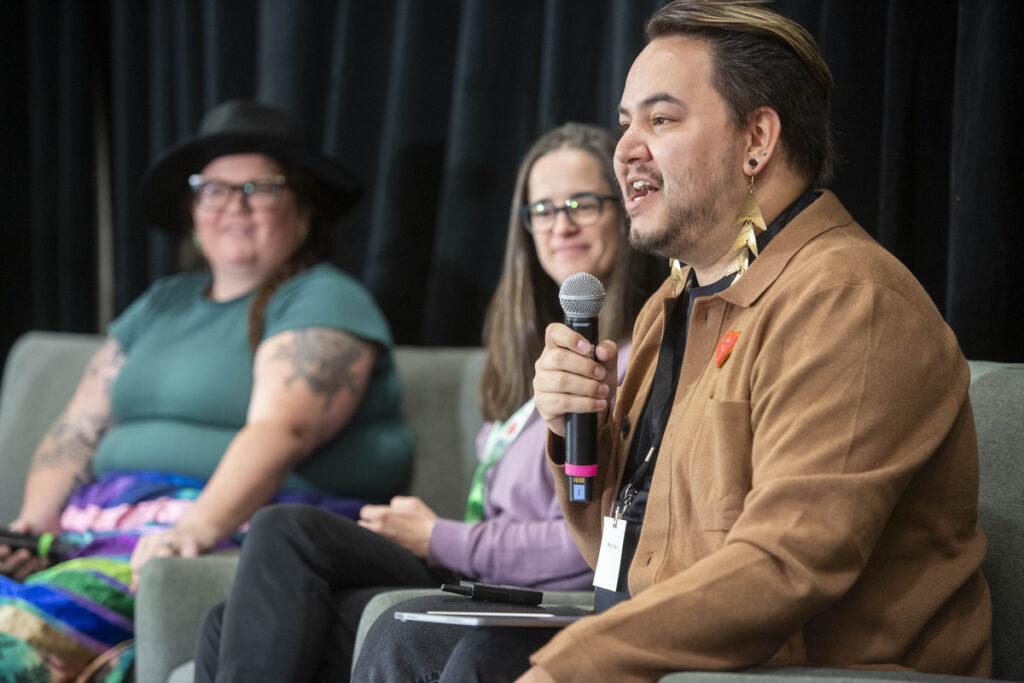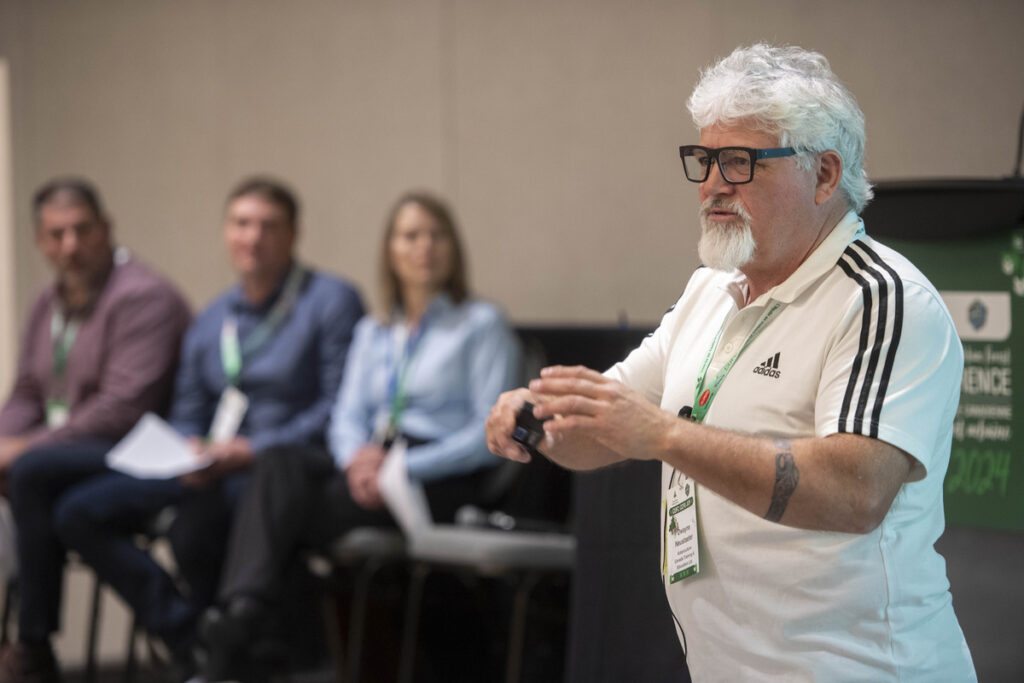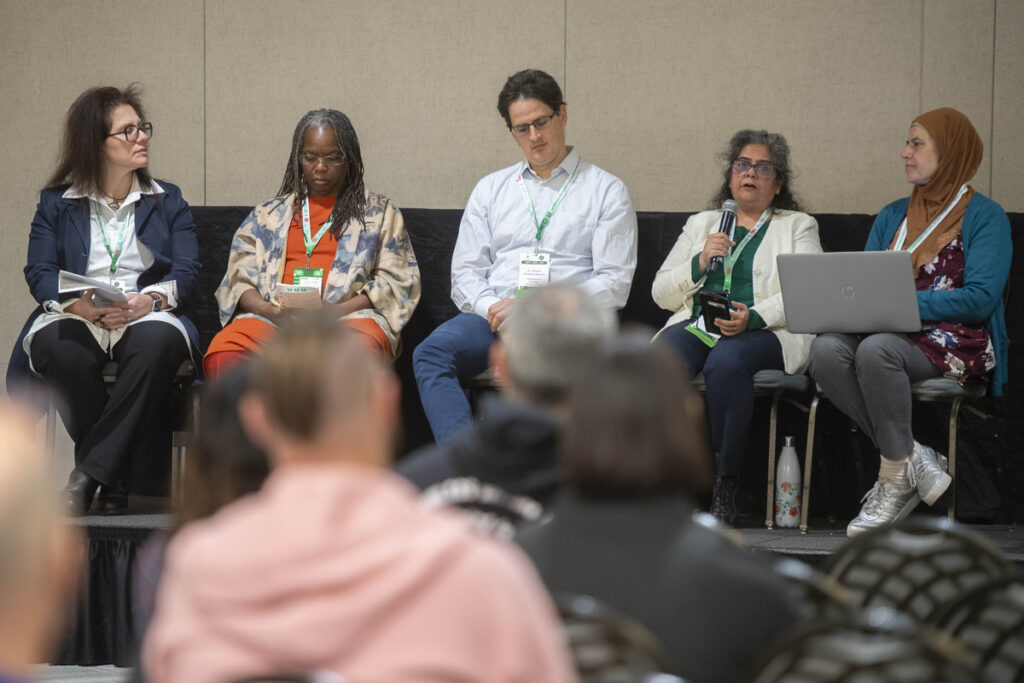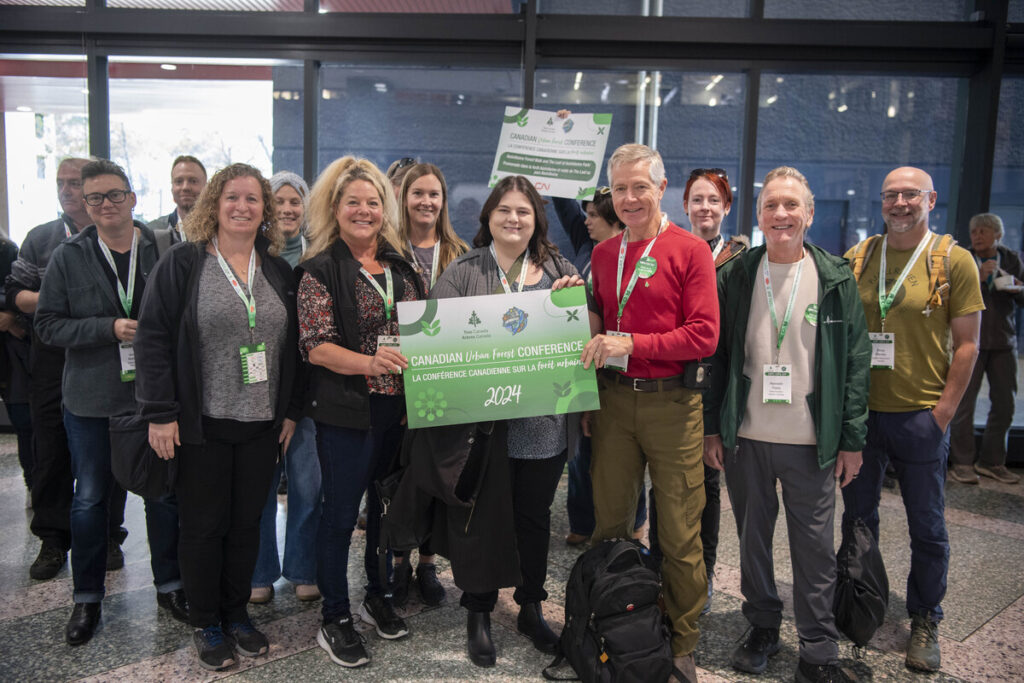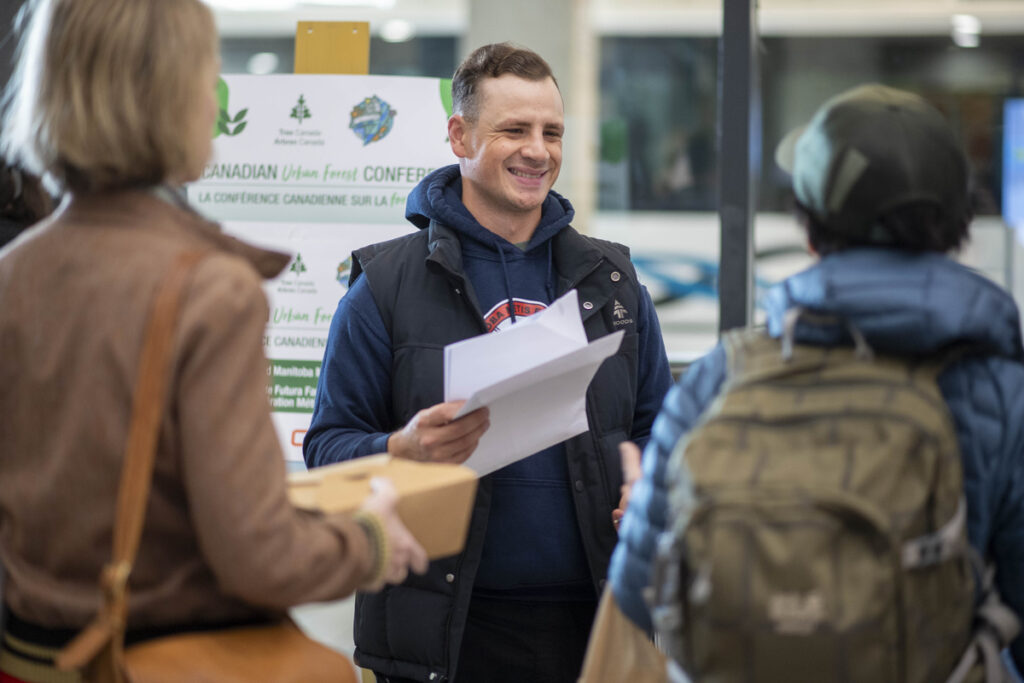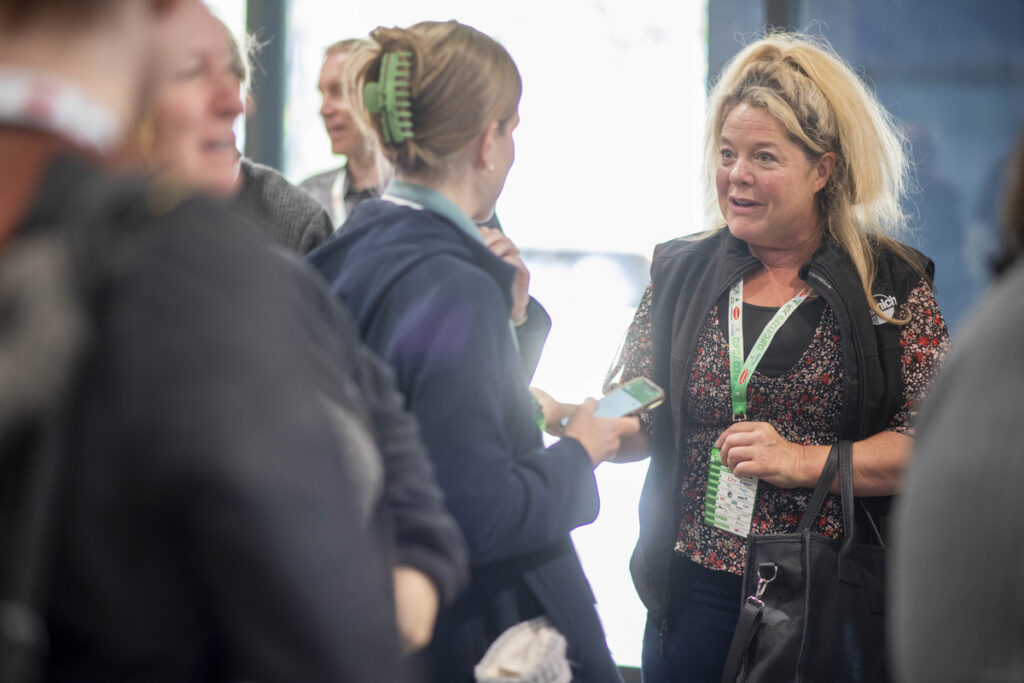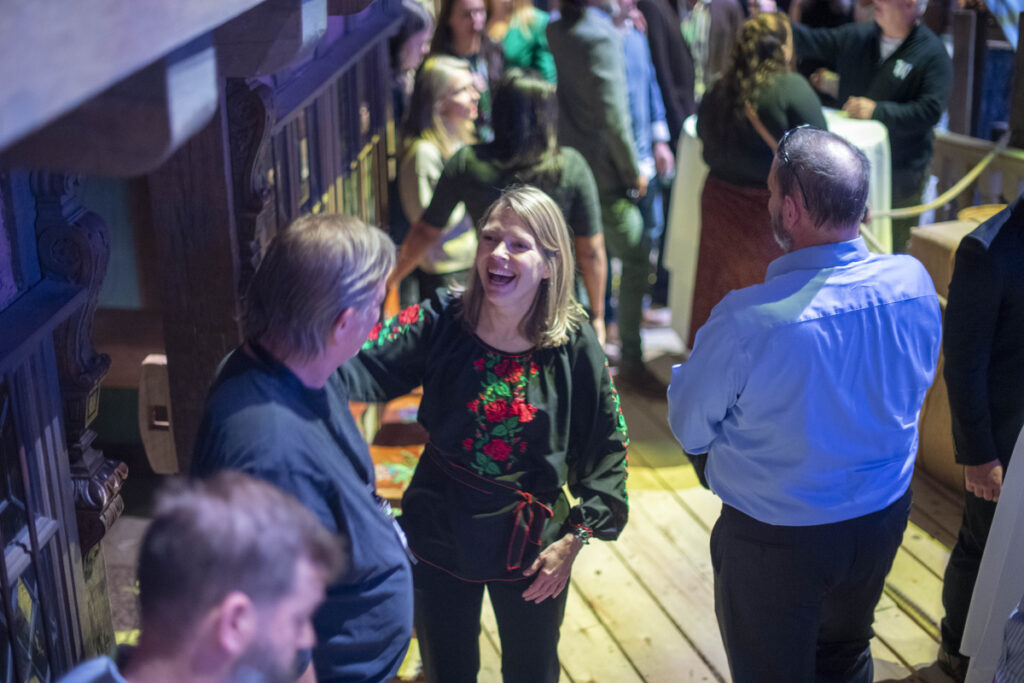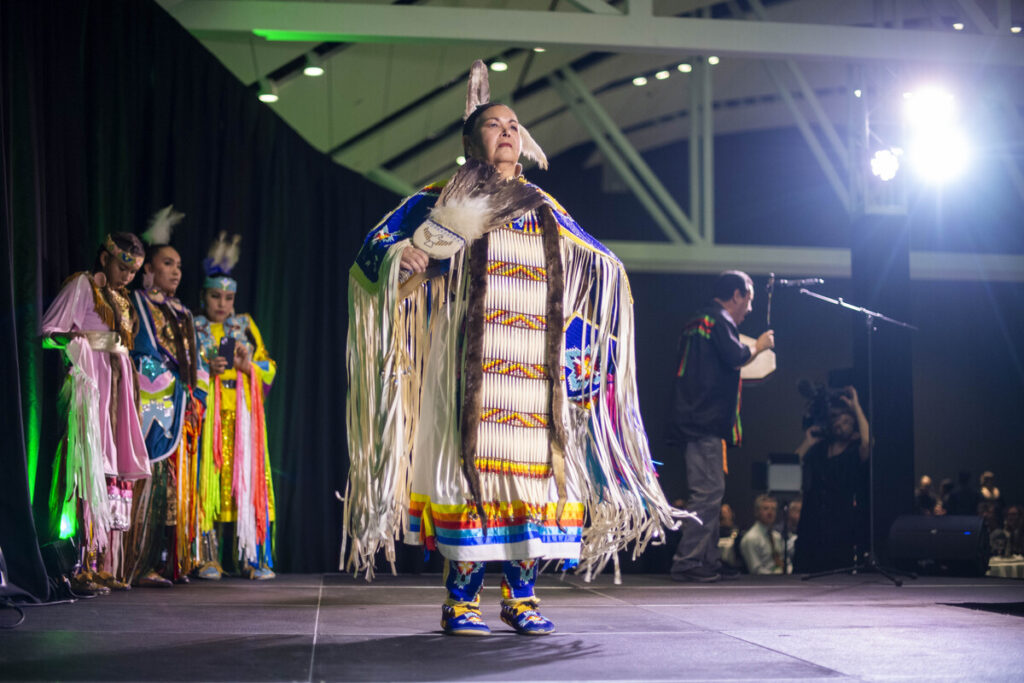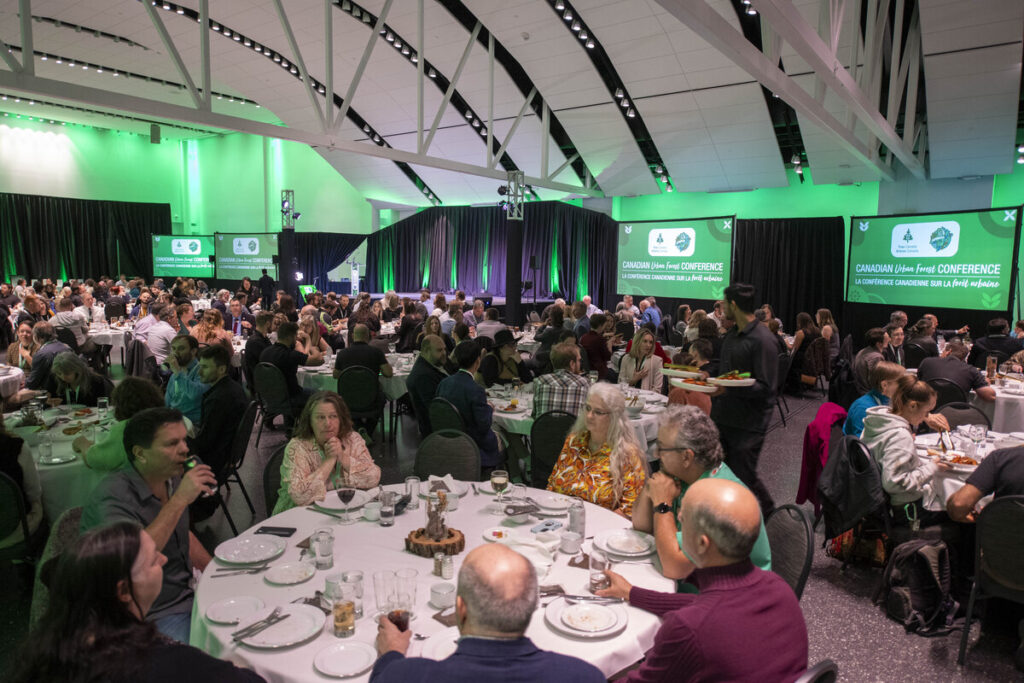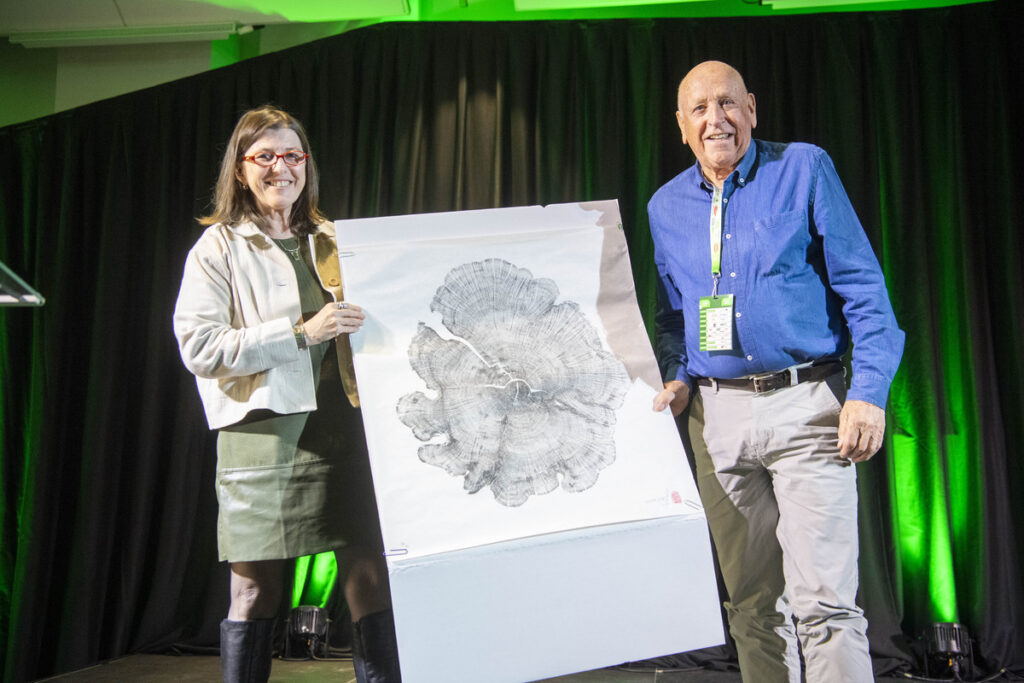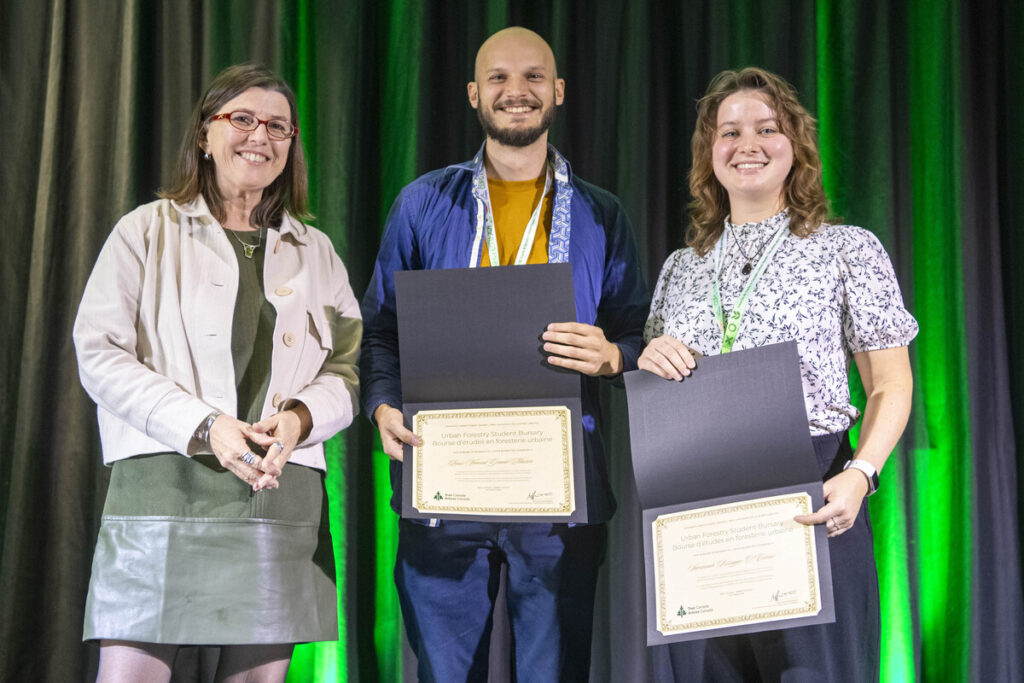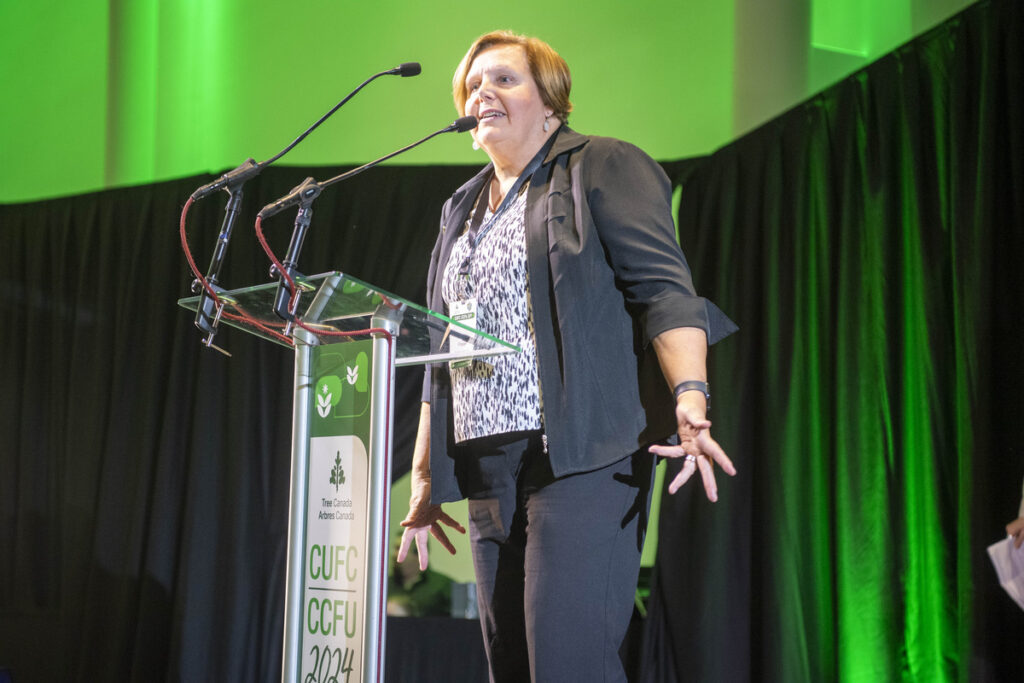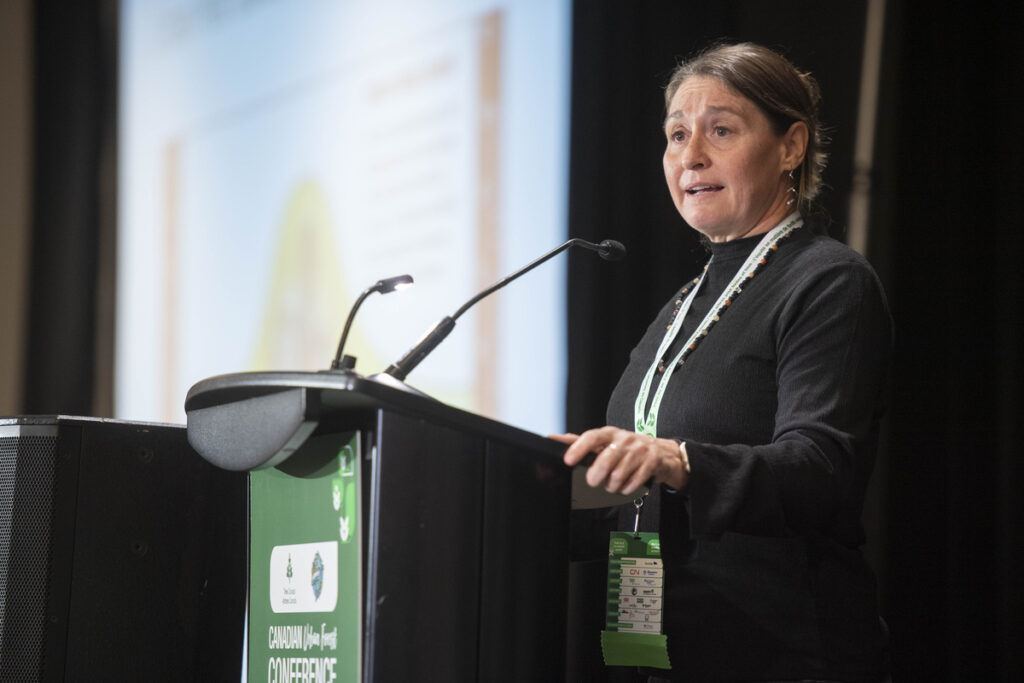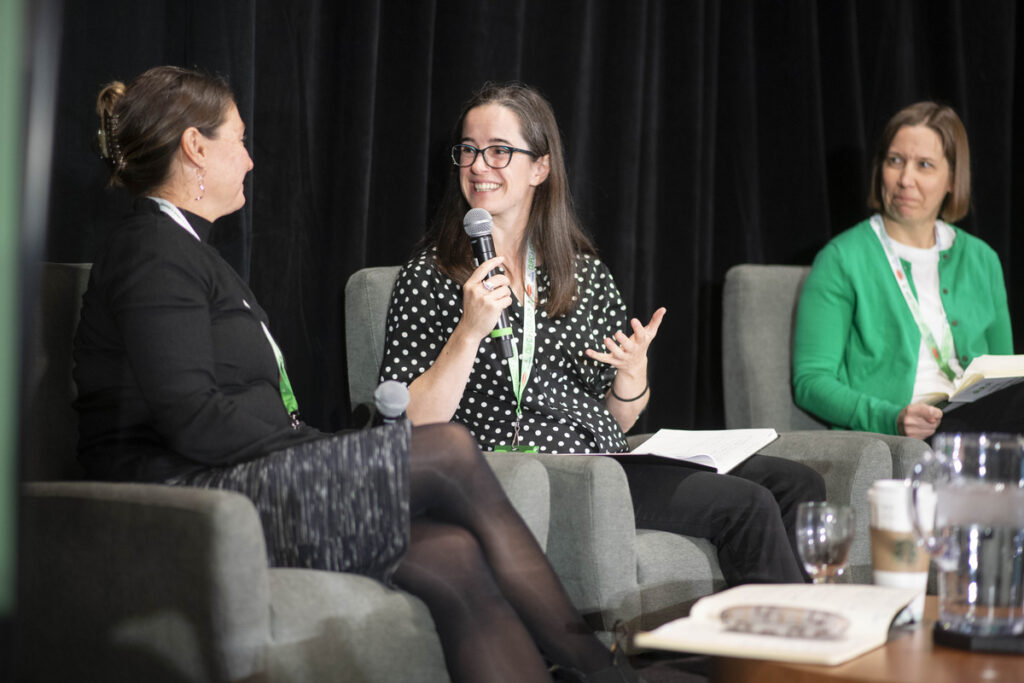Program at a Glance
Click on a session or activity below to learn more about the presentation, time, and location.
Download the PDF version below:
- Pre-Conference - October 15Pre-Conference Workshop - MBUFCPre-Conference Workshop - UforWelcome Reception
- Day 1 - October 16Opening Keynote SessionBreakout SessionsBreakout SessionsKeynote Panel Discussion #1Networking Reception, Exhibit Hall and Poster Presentations
- Day 2 - October 17Tree Canada PlenaryBreakout Panel SessionsField ToursCUFC Gala Dinner with Reception
- Day 3 - October 18Keynote Panel Discussion #2Breakout SessionsBreakout SessionsKeynote Session #3
Program
Pre-Conference Workshop - MBUFC
Arboriculture in Today’s Prairie Climate
1:00 PM - 4:00 PM
Description
The Manitoba Urban Forest Council pre-conference/fall workshop is open to all our members and conference participants. Our focus will be on the prairie climate. The current trends and future forecasts that influence planning and implementation of arboriculture practices in our local communities, along with ideas on how to move ahead in a challenging prairie climate.
Pre-Conference Workshop - Ufor
Where Professional Development and Scholarship Meet: The Ufor Network as Canada’s Nexus
1:00 PM - 4:00 PM
Description
The urban forestry training (Ufor) program aims to increase the supply of well-qualified professional leaders capable of managing urban forestry (UF) in new urban ecosystems shaped by complex socio-cultural and economic conditions. The program is a collaborative professional education and training network for students pursuing urban forestry studies that allows students to connect with professional partners and gain practical experience. This workshop will feature a diverse panel of program partners sharing their insights on cross-sector collaborations between research and practice, and a series of student presentations that contend with a variety of topics, including urban ecology, urban soils, social considerations in urban forestry and private properties and NGO’s in urban forestry.
Panelists/partners will include Alison Munson (Laval University), Dr. Lorien Nesbitt (UBC), Dr. Adrina Bardekjian (Tree Canada) and municipal partners. Workshop participants will leave with a greater understanding of the impact of professional collaborations during academic learning for both students and partners alike.
Welcome Reception
4:30 PM - 6:30 PM
This reception will bring together conference delegates, committee and board members, sponsors, and exhibitors. Light refreshments and a cash bar will be available.
Opening Keynote Session
Urban Forest Equity
9:00 AM - 10:30 AM
Speaker
Jad Daley, President and CEO, American Forests
Presentation
Breakout Sessions
More details to follow.
11:00 AM - 12:30 PM
Breakout Sessions
More details to follow.
1:30 PM - 3:00 PM
Keynote Panel Discussion #1
Indigenous Perspectives in Urban Forestry
3:30 PM - 5:00 PM
Speakers
Dr. Peggy Smith, Lakehead University and Kevin Wasylenko, Manitoba Metis Federation
Presentations
Networking Reception, Exhibit Hall and Poster Presentations
More details to follow.
5:00 PM - 7:00 PM
Tree Canada Plenary
Trends in Urban Forestry and New Directions: What is Tree Canada’s Role in the Climate Crisis?
8:30 AM - 9:30 AM
Speakers
Moderator:
- Dr. Sandy Smith, University of Toronto, Tree Canada Board Member
Panelists:
- Nicole Hurtubise, CEO, Tree Canada
- Dr. Adrina C. Bardekjian, Director of Research and Engagement, Tree Canada
- Greg Hotte, Chief Development Officer, Tree Canada
- Michael Petryk, Director of Urban Programs, Tree Canada
Description
From organizing the first Canadian Urban Forest Conference in 1992, to the creation of the Canadian Urban Forest Network listserv in 2007, Tree Canada has been at the forefront of urban forestry’s growing impact and influence across the country. The organization has witnessed changing trends as they relate to practice, planning, research, and how external forces –including government and corporations – have supported or undervalued urban forestry.
This panel will explore how Tree Canada’s role in urban forestry discussions continues to evolve, how its programs are adapting to challenges, and the increased understanding and appreciation for urban forestry from external funders. Panelists will discuss the state of urban forestry in 2024, share project examples and case studies of novel partnerships, and look ahead to how Tree Canada will continue supporting urban forestry and the community at the national level.
Breakout Panel Sessions
More details to follow.
9:30 AM - 11:00 AM
Field Tours
11:30 AM - 5:00 PM
Please select one field tour when registering.
It is strongly recommended to wear warm clothing and footwear for all tours.
-
- Prairie Tree Nursery Tour
- Dead Horse Cidery Tour
- Winnipeg Tree Planting Tour
- Futura Farms and Manitoba Metis Federation Nursery Tour
- Assiniboine Forest Walk and The Leaf at Assiniboine Park
- Walking tour of trees and infrastructure in Downtown Winnipeg
Learn more about each tours, here.
CUFC Gala Dinner with Reception
5:30 PM - 10:00 PM
Manitoba Museum
Keynote Panel Discussion #2
Engaging Communities: Rethinking Urban Forest Strategies for Equitable and Livable Cities
8:30 AM - 10:00 AM
Speakers
Dr. Tenley Conway, University of Toronto (Mississauga) & Dr. Melissa McHale, University of British Columbia
Description
Dr. McHale will open the session by discussing the importance of prioritizing green infrastructure investments in areas that can have the greatest impact on people’s lives. Using bus stops as a focal point, she will highlight research on how trees can mitigate urban heat and create comfortable environments for transit users. She will advocate for city-academic-residential partnerships to ensure that urban forest policies lead to the desired outcomes, particularly in the face of complex trade-offs such as water use and cooling in dense urban areas. Dr. McHale will also emphasize the need for Canada-specific research to address unique challenges in urban planning and climate adaptation.
Following this, Dr. Conway will delve deeper into the perspectives and motivations of residents—an often-overlooked but crucial element in urban forestry. Her research reveals that Canadians’ decisions to plant trees are frequently influenced by aesthetics rather than ecosystem services, with a tendency to choose smaller trees. She will argue that residents are not a homogenous group and must be acknowledged as diverse partners in urban forest management. Dr. Conway will share strategies for effectively engaging with residents, listening to their knowledge, and incorporating their preferences into urban forestry practices.
The session will conclude with a moderated discussion facilitated by Camille Lefrançois from Diamond Head Consulting. As an environmental planner with extensive experience in strategic planning, policy, and community engagement across Canada and the US, Camille brings a unique perspective to the conversation on creating livable cities. Her work in green space planning and community dialogue will enrich the discussion on how to balance scientific, policy, and community perspectives to foster inclusive and resilient urban forests across Canada.
Breakout Sessions
More details to follow.
10:30 AM - 12:00 PM
Breakout Sessions
More details to follow.
1:00 PM - 2:30 PM
Keynote Session #3
Advancing Equity in Canada’s Urban Forests: Beyond Metrics, Toward Community Empowerment
3:00 PM - 4:00 PM
Speaker
Dr. Lorien Nesbitt, University of British Columbia
Description
In this closing plenary, Dr. Nesbitt will discuss how tools like the American Forests Tree Equity Tool provide valuable insights into distributional disparities but must be complemented by deeper, community-driven approaches to achieve true urban forest equity. Despite ongoing efforts, tree canopy loss continues in many cities, increasing vulnerability to climate change, particularly in under-resourced communities. To make real progress, we must recognize and support the stewardship, knowledges, and lived experiences of residents in low-canopy areas. Drawing on her lab’s work with participatory action research, Dr. Nesbitt will highlight how practitioners can work through transdisciplinary partnerships to centre community values and knowledge to co-create equitable, resilient urban forests.
Photos by Dan Harper.
